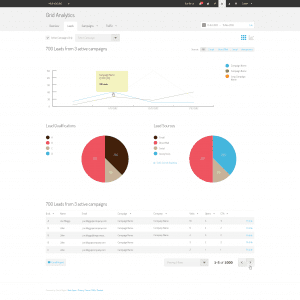Topics
Channel Marketing Changing Direction
Here are some channel truisms about marketing:
Solution providers are terrible marketers. They don’t invest in marketing. They don’t frame their value propositions beyond their technical skill sets. And they have unrealistic expectations for the returns on their marketing investments.
Vendors, on the other hand, are myopic marketers. They’re most concerned with generating leads that feed direct and indirect sales. They’ll talk about the importance of communications, collaboration, brand building and cultivating partner and customer loyalty — but they default to lead generation because that’s what satisfies product managers.
Both perspectives point in one direction: down. Down to the end user. Down to the ultimate customer. Down to the consumer of their products and services.
Let’s go back to that last point: The consumer of their products and services is the inflection point at which marketing should be reversed. Solution providers need to learn how to market to vendors.
The average solution provider isn’t doing a tremendous amount of customer prospecting, lead generation or market development. Vendor direct and channel sales reps are paving the way for partner sales. They’ll uncover an opportunity, often through a product marketing program, and bring in a partner for fulfillment.
Here’s where reverse marketing comes into play: To earn those opportunities, solution providers need to educate and continually reinforce their competencies, capabilities and capacities to their vendors. By providing vendor sales with a steady stream of information on certifications, qualifications, staffing, market reach and extended partnerships, a solution provider will differentiate themselves from their peers and remain top-of-mind when opportunities arise.
Consider this: To whom do vendor certifications and specializations have greater appeal? Yes, customers like to know a solution provider is qualified. But vendor sales teams appreciate such credentials the same, if not more, because it allows them to eyeball partners when walking into sales conversations.
Solution providers that spend time cultivating relationships with their channel account managers, territory field reps and direct sales counterparts have far greater sales success and revenue performance than those trying to pull double duty on sales and tech fulfillment. The few solution providers that apply marketing techniques to maintain their vendor relationships are getting pulled into more deals and growing faster.
Marketing into vendors is going to take on greater importance as the market shifts into services. Cloud computing and hosted services are transforming hosting companies and service providers into vendor customers. Their consumption of vendor products is dictated by their growth. And the best way to grow a service provider business is to turn on a channel. Traditional hardware and software vendors already are redirecting partners to their service provider customers for this very reason. The best opportunities will go to those with clearly defined capabilities, disciplines and values.
Moreover, it’s just a good idea to let your partners know what you’re doing and what’s new. By sharing news about staffing, market expansions and certifications, a solution provider is telling vendors they’re investing and improving to stay relevant.
Vendors do market and communicate to partners, but it’s more of a “fire hose” approach. They inundate partners with promotions, opportunities, educational materials, executive changes and other news. The volume is overwhelming, which renders many vendor efforts ineffective. Solution provider marketing into vendors will help vendors better segment their streams for more targeted and effective communication.
None of this means conventional end-user marketing is unnecessary or ineffective. But vendors and solution providers need to recognize marketing isn’t linear. Building better, more relevant businesses requires marketing to partners, collaborators and supporters as much as the ultimate customers.
Lawrence M. Walsh is the President and CEO of The 2112 Group, a leading channel research and professional services firm, as well as the lead contributor to Channelnomics, the industry’s site devoted to the economics of the IT channel.















